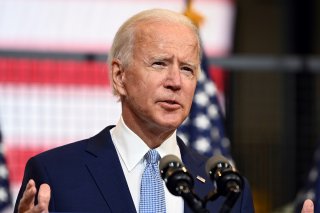Alliances First: Joe Biden’s Historic Opportunity to Reshape Global Order
America’s alliances have been one of its greatest strategic assets, helping unleash unprecedented geopolitical stability, economic development, and increase in human dignity worldwide over the last 75 years. Trump nearly destroyed this asset. But by reinvesting in these relationships and approaching them in a more networked and humble manner, Biden can address the most consequential challenges and crises of today and tomorrow while constructing a new order for the coming decades.
Biden’s pursuit of deeper engagement with democratic allies does not imply turning away from the UN or other multilateral entities. On the contrary, closer cooperation by democracies will have a natural outlet in the international organizations. The aim is to have an inside-outside strategy where common positions and tighter diplomatic coordination among democratic allies will bolster preferred American policies in the international arena through action at the United Nations, the G20, the OECD, and other multilateral organizations.
This is not a recipe for a new polarized world. Biden will need to pursue engagement with non-democracies, including strategic rivals China and Russia, to seek cooperation and establish new rules on issues where their interests align or the risks of unbridled competition are too high, and to foster greater compliance by these powers with the rules and norms of the international system.
Managing Troublesome Dynamics
Biden will also face a difficult challenge on how to deal with democratic backsliding among allies, particularly Turkey and Hungary – NATO members that have pursued increasingly repressive against their own populations. The Biden administration will need to develop a new approach for dealing with this challenge that provides the basis for calculated cooperation on areas of US and mutual interest, while also incentivizing democratic reform and allowing for candid criticism when appropriate.
Democracies, of course, have differing interests and priorities. Some, like Japan and South Korea, and now Britain and the EU, may have difficult, unresolved issues between them. The US and its allies will not always agree; this was true before Trump and will be true after he leaves. But US determination to maintain democratic solidarity in the face of shared challenges, strategic consideration of when the US can subsume its preferences to those of allies, and encouragement of allies’ leadership can manage this inherent diplomatic tension.
America’s alliances have been one of its greatest strategic assets, helping unleash unprecedented geopolitical stability, economic development, and increase in human dignity worldwide over the last 75 years. Trump nearly destroyed this asset. But by reinvesting in these relationships and approaching them in a more networked and humble manner, Biden can address the most consequential challenges and crises of today and tomorrow while constructing a new order for the coming decades.
Ash Jain is a senior fellow with the Atlantic Council’s Scowcroft Center for Strategy and Security, overseeing the Democratic Order Initiative. He served previously as a member of the Secretary of State’s Policy Planning Staff.
Alex Pascal is a non-resident scholar at the Carnegie Endowment for International Peace. He served previously as director for strategic planning at the National Security Council.
Image: Reuters.

